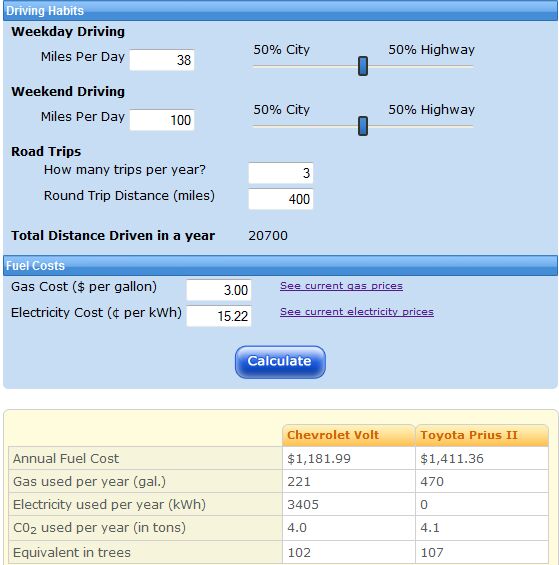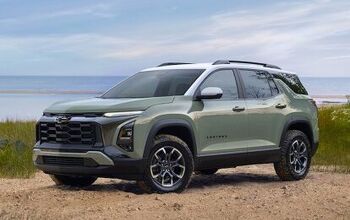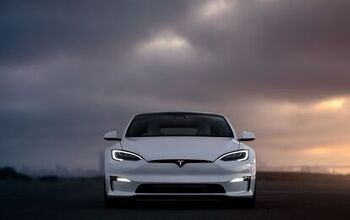Voltonomics 101: Your Costs Will Vary – Calculate Them Yourself Here

My initial self-appointed assignment was to come up with a comprehensive cost analysis of the Volt in comparison to the Prius and other vehicles. I first took this on two and a half years ago, and the results from that gazing-into-the crystal-ball exercise are actually still remarkably accurate, except for the Volt failing to meet its then-promised 50mpg fuel economy. The task, given the infinite variables, is essentially impossible, and thankfully, I was forwarded a link to this Electric Car Calculator. It’s far from perfect, given that it doesn’t account for depreciation, finance costs, leasing, maintenance, etc. What it does do is allow you to input your driving regime, both weekdays and weekends, electric and gas costs, and come up with a comparison for overall fuel costs with your choice of another vehicle; a good start:
I gave it a try, and decided to use my old driving pattern back in CA when I had a real job and commute; my current driving patterns would be totally wasted on a Volt. I compared the Volt to a Prius, but I did adjust some of the numbers manually. The Calculator uses EPA numbers; I brought the Prius number down to a real-world average of 44 mpg. And I lowered the Volt’s 40 mile electric range to 35, based on the many reviews. Even that might be too much, since my commute was almost all freeway. I also assumed the Volt’s gas mileage at 35mpg, and then lowered it to 32, to compensate for the higher price of premium fuel. Here’s how it came out:
In this comparison, the total fuel costs are almost identical for both the Volt and Prius. Note that “fuel cost” is a combination of electric and gas costs. My driving habits back then included several longer business and personal trips per week, which I factored into “weekend driving”.
I also used a 15.2 cents per Kwh electric rate, which is the average in CA. But that may be way too low, since tiered rates in CA go up to 40 cents.
Obviously, in this scenario, the Volt never begins to pay back its much higher purchase cost. It will probably take a pretty optimum driving regime to do that, or substantially higher fuel costs.
Try it out for yourself, and if anyone finds or comes up with something better, let us know.

More by Paul Niedermeyer
Latest Car Reviews
Read moreLatest Product Reviews
Read moreRecent Comments
- TheEndlessEnigma I would mandate the elimination of all autonomous driving tech in automobiles. And specifically for GM....sorry....gm....I would mandate On Star be offered as an option only.Not quite the question you asked but.....you asked.
- MaintenanceCosts There's not a lot of meat to this (or to an argument in the opposite direction) without some data comparing the respective frequency of "good" activations that prevent a collision and false alarms. The studies I see show between 25% and 40% reduction in rear-end crashes where AEB is installed, so we have one side of that equation, but there doesn't seem to be much if any data out there on the frequency of false activations, especially false activations that cause a collision.
- Zerocred Automatic emergency braking scared the hell out of me. I was coming up on a line of stopped cars that the Jeep (Grand Cherokee) thought was too fast and it blared out an incredibly loud warbling sound while applying the brakes. I had the car under control and wasn’t in danger of hitting anything. It was one of those ‘wtf just happened’ moments.I like adaptive cruise control, the backup camera and the warning about approaching emergency vehicles. I’m ambivalent about rear cross traffic alert and all the different tones if it thinks I’m too close to anything. I turned off lane keep assist, auto start-stop, emergency backup stop. The Jeep also has automatic parking (parallel and back in), which I’ve never used.
- MaintenanceCosts Mandatory speed limiters.Flame away - I'm well aware this is the most unpopular opinion on the internet - but the overwhelming majority of the driving population has not proven itself even close to capable of managing unlimited vehicles, and it's time to start dealing with it.Three important mitigations have to be in place:(1) They give 10 mph grace on non-limited-access roads and 15-20 on limited-access roads. The goal is not exact compliance but stopping extreme speeding.(2) They work entirely locally, except for downloading speed limit data for large map segments (too large to identify with any precision where the driver is). Neither location nor speed data is ever uploaded.(3) They don't enforce on private property, only on public roadways. Race your track cars to your heart's content.
- GIJOOOE Anyone who thinks that sleazbag used car dealers no longer exist in America has obviously never been in the military. Doesn’t matter what branch nor assigned duty station, just drive within a few miles of a military base and you’ll see more sleazbags selling used cars than you can imagine. So glad I never fell for their scams, but there are literally tens of thousands of soldiers/sailors/Marines/airmen who have been sold a pos car on a 25% interest rate.





































Comments
Join the conversation
Compared to my current vehicle (1990 Volvo 740 Turbo, 21 mpg), it will take over 15 years to break even. That's not including the aforementioned shortcomings in depreciation etc. And my Volvo is more fun to drive anyway (~300 hp @ 3000 lbs).
Thank you for your incredible response and feedback. We have updated the Electric Car Calculator with the following new features...in addition to calculating breakeven, we now calculate Cost Equivalent MPG for electric cars, tailpipe and upstream CO2 emissions, and also allow for diesel cars. The Electric Car Calculator is available here: http://www.befrugal.com/tools/electric-car-calculator